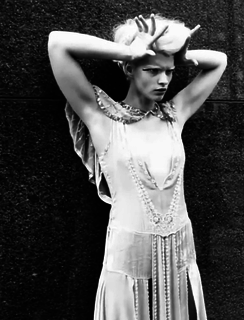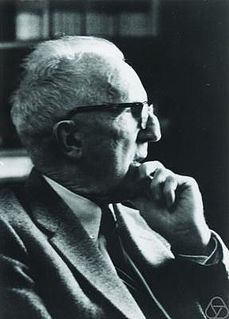A Quote by Saint Augustine
Poltinus the Platonist proves by means of the blossoms and leaves that from the Supreme God, whose beauty is invisible and ineffable, Providence reaches down to the things of earth here below. He points out that these frail and mortal objects could not be endowed with a beauty so immaculate and so exquisitely wrought, did they not issue from the Divinity which endlessly prevades with its invisible and unchanging beauty all things.
Related Quotes
One of the things that's happening to a lot of us is that there's this vision of the beauty of God that transports us and that takes us to a new depth and a new height. It's one of those things about beauty. You can't capture it in a word or a formula. When you get to that humble place where the beauty of God has overwhelmed you, I think it changes everything. You can say the same creed that you said before, but now it's not a creed that grasps God in the fist of the words, but it's a creed that points up to a beauty that's beyond anybody's grasp.
The beauty of a finely worked object points to the beauty of the craftsmanship. The beauty of the craftsmanship points to the beauty of the name which was the source of the craftsmanship. The beauty of the name of the craftsman's art points to the beauty of the craftsman's attributes manifested in that art.
Beauty is a key to the mystery and a call to transcendence. It is an invitation to savor life and to dream of the future. That is why the beauty of created things can never fully satisfy. It stirs that hidden nostalgia for God which a lover of beauty like Saint Augustine could express in incomparable terms: 'Late have I loved you, beauty so old and so new: late have I loved you!'.
It's so hard to give beauty a meaning. I actually find quite a lot of beauty in really painful things. Really grotesque things. Things that are disturbing. I think as you go and as you see things in the world, your idea of beauty expands and I think I'm lucky because I've been exposed to so many different types of beauty and I've realized that any feeling you cherish is beautiful.
It is the search for beauty...That is what it is. We find ourselves on this earth--gods and men--and we know that it is beautiful. That is one of the few things we understand--beauty; because it is there, in the world, and we can see it all about us. We want beauty. It requires our love. It just does.
I have always stressed to my girls that outer beauty fades but inner beauty lasts forever. Simple things like smiling and looking people in the eye could change someone's bad day into a good one. My mom always said that beauty is as beauty does, and I'm sure it will pass along to all the future generations of our family.









































